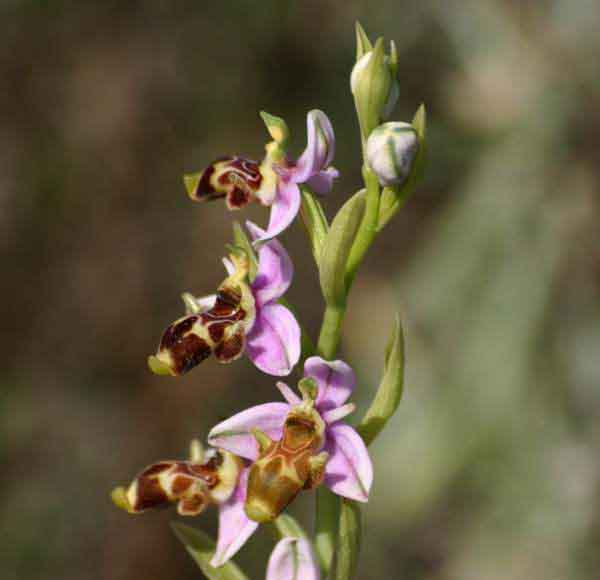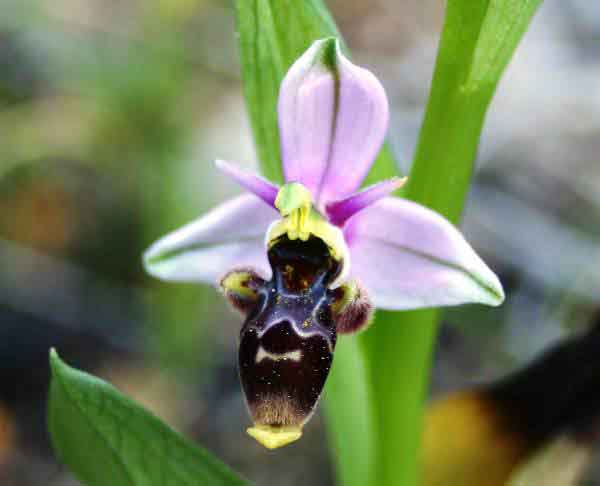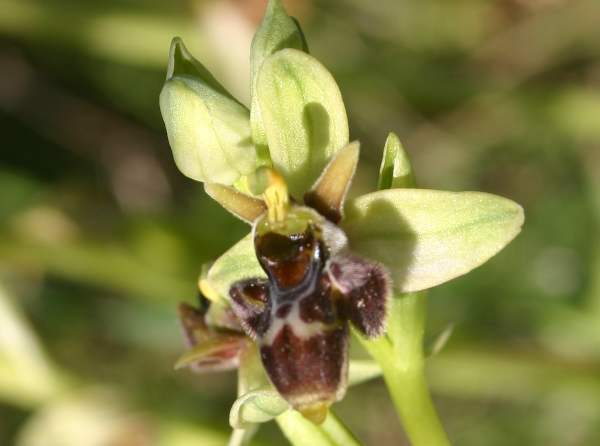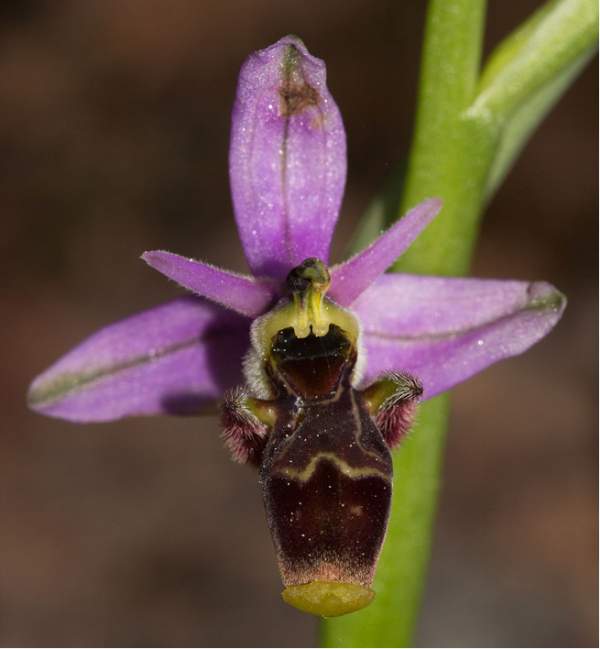Ophrys scolopax subsp. scolopax - Woodcock Orchid and Ophrys scolopax subsp. apiformis
Phylum: Magnoliophyta - Class: Liliopsida - Order: Orchidales - Family: Orchidaceae

Ophrys scolopax is often confused with Ophrys apifera - Bee Orchid, but the flowers of Ophrys scolopax are smaller and narrower.
Description
This orchid grows up to 50 cm in height. The lax inflorescence carries between 2 - 15 flowers. The flowers usually have pink sepals and petals but occasionally specimens with green or white sepals and petals are found. The flower lip is deeply lobed and dark brown. The shape of the speculum is variable but it is generally dark blue bordered with white.
Distribution

Spread throughout the Mediterranean region and particularly well represented in the Iberian Peninsula. The Algarve region of Portugal is one of its strongholds.
Habitat
Ophrys scolopax grows in stony, rocky coastal habitats with alkaline substrates. Abandoned farm terraces and areas of scrub are suitable places to look
Flowering times
From March to the beginning of May

Ophrys scolopax subsp. scolopax with green petals and sepals.
Ophrys scolopax subsp. apiformis
In some parts of its range Ophrys scolopax grows along with a subspecies - Ophrys scolopax subsp. apiformis.

Description
Ophrys scolopax subsp. apiformis grows to around 40cm in height and carries between 2 - 14 flowers. The petals and sepals are usually a dark rose pink with green markings. Confusingly, specimens of the this subspecies can also have green or white sepals. The petals are linnear and almost horizontal and, unlike Ophrys scolopax subsp. scolopax, they are seldom concave or backwardly reflexed. The flower lip is deeply lobed with the side lobes being so angular that they appear to be triangular in shape. The central lobe is markedly narrower at the tip than in Ophrys scolopax subsp. scolopax.
Distribution, habitat and flowering times
As above for Ophrys scolopax subsp. scolopax.
The specimens on this page were photographed in Portugal in the Algarve in mid March.
Etymology
The genus name Ophrys comes from Greek and means 'eyebrow' - a reference to the hairy fringe of the lip of the flower of many orchids in this genus. The specific epithet scolopax refers to the patterning on the labellum of this orchid, which is said to be reminiscent of the striking plumage of the European Woodcock, Scolopax rusticola.
Reference sources
The Plant List
Sue Parker (2023) Wild Orchids of the Algarve - where, when and how to find them; First Nature e-book (Amazon Kindle format)
Chris Thorogood and Simon Hiscock (2014) Field Guide to the Wildflowers of the Algarve; Kew Publishing
Henrik AErenlund Pedersen & Niels Faurholdt (2007) Ophrys - The Bee Orchids of Europe; Kew
Pierre Delforge (2005) Orchids of Europe, North Africa and the Middle East; A&C Black
Fielding, Turland and Mathew (2005) Flowers of Crete; Kew
Please Help Us: If you have found this information interesting and useful, please consider helping to keep First Nature online by making a small donation towards the web hosting and internet costs.
Any donations over and above the essential running costs will help support the conservation work of Plantlife, the Rivers Trust and charitable botanic gardens - as do author royalties and publisher proceeds from books by Pat and Sue.


